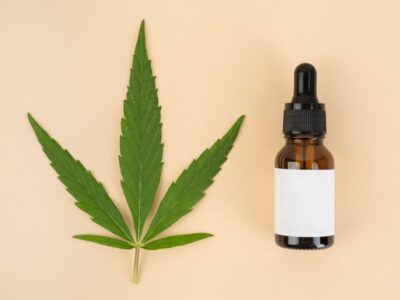Is it okay to use CBD? Hemp was excluded from the Controlled Substances Act’s legal definition of marijuana by the 2018 Farm Bill. As a result, some CBD products made from hemp and containing less than 0.3 percent THC are now approved by the federal government. On the other hand, CBD products with greater than 0.3 percent THC come under the legal definition of marijuana, making them illegal federally but legal in specific states. Check state laws before leaving, especially. Also keep in mind that the FDA has not approved non-prescription CBD products, and some products can contain inaccurate labels.
Applying cannabidiol (CBD) oil to a hurting area or ingesting it may help reduce neuropathy discomfort. However, more research is need to validate the efficacy and safety of CBD products.
Symptoms of neuropathy include persistent pain brought on by injured nerves. It can be really painful, and sometimes the painkillers that a doctor has recommended are insufficient. Some people could look for alternative therapies, including CBD oil.
What is CBD oil, exactly?
Cannabis is the plant from which CBD oil is made. Tetrahydrocannabinol (THC), the molecule that gives cannabis its high, is not frequently present in CBD products. THC is typically only found in minimal levels in products.
The effectiveness of CBD oil for a number of conditions, including chronic pain, is being studied by researchers. Additionally, there is continuing research into the security of CBD products.
People may find it challenging to choose a secure CBD oil product due to the lack of consistent government regulation. Numerous research have suggested that some products may have inaccurate labels or unexpected components or amounts.
The safety, efficacy, or quality of CBD products offered for sale over the counter have not been endorsed by the Food and Drug Administration (FDA).
To protect their health, people can, however, take legal action against CBD businesses that make unfounded health claims.
In reference to Neuropathy
Neuropathy is a type of chronic pain. Nerve damage is a defining feature of neuropathy.
Damaged nerves may result from a physically traumatic event or from a number of conditions, such as:
- Diabetes
- Infections
- Certain nutrient deficiencies
- Chronic alcohol use disorder
- Inflammatory conditions, such as vasculitis
- Low thyroid hormone, or hypothyroidism
When medical professionals are unable to identify the root cause of a patient’s neuropathy, they may suggest a number of different treatments.
The doctor would first attempt to control the problem if neuropathy was brought on by a treatable ailment, such as diabetes, a persistent alcohol use disorder, or vitamin deficiency.
People with chronic neuropathic pain may find it helpful to contact a pain specialist if over-the-counter pain medications do not relieve their symptoms.
CBD oil and neuropathic pain
An individual may wish to look into CBD oil for neuropathy if traditional methods of pain management are ineffective.
A small 2020 study discovery
Reliable sources state that 29 neuropathy patients were randomly given either CBD oil or a placebo by researchers.
Participants in the CBD oil group experienced a statistically significant decrease in pain when compared to those in the placebo group, and they tolerated the medication well.
Although these results are encouraging, further research on a larger population is required to verify them.












